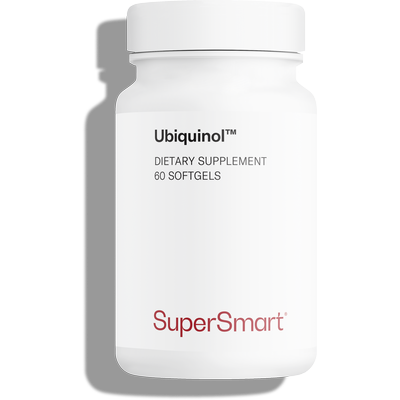20-06-2016
If I could take just one supplement to a desert island...
 If I were allowed to take just one supplement to a desert island … it would be CoQ10, also known as coenzyme Q10, or ubiquinone.
If I were allowed to take just one supplement to a desert island … it would be CoQ10, also known as coenzyme Q10, or ubiquinone.
In its pure state, it is a yellowish crystal powder with no taste or smell. But as its name suggests, it is a substance which is found throughout the body, “ubi” meaning everywhere” in Latin.
The English scientist Peter Mitchell, was awarded the Nobel Prize in 1978 for his discoveries about CoQ10 - for it is a truly extraordinary and vital substance. It is present in every cell in the body where it acts as a spark plug, igniting energy production in the mitochondria (the mini-powerhouses that produce cellular energy).
All our vital organs, particularly the heart and brain, need a constant supply of CoQ10 in order to function. But that’s also the case for each of the body’s 10,000 billion cells. CoQ10 is also a very powerful antioxidant. It is CoQ10 that intervenes as soon as our vitamin C reserves are exhausted, as well as protecting our vitamin E reserves.
Normally, some CoQ10 is produced by the liver and the diet provides the rest: CoQ10 is present in walnuts, almonds, oils and oil-rich fruit and in green vegetables.
Spinach is particularly rich in CoQ10. So are certain fish such as sardines which contain twice as much CoQ10 as beefsteak. However, let’s be clear: you would need to eat 1.6kg of sardines in order to consume 100mg of CoQ10 - half your daily requirement.
We know that levels of CoQ10 produced by the liver decline with age and can even plummet in people taking statins (cholesterol-lowering drugs). Memory problems and cardiac disease (ischaemia) can then develop.
A lack of CoQ10 had been linked to so many diseases it is impossible to list them all here. They include cancer, cardiovascular disease, Alzheimer’s disease, prostate problems, Parkinson’s disease, migraines, and age-related macular degeneration.
Since 1974, CoQ10 has been officially recognised in Japan as a treatment for congestive heart failure. Millions of Japanese take it every day.
As a result, numerous scientific studies have been carried out. The authors of a meta-analysis published in 2006 which looked at eleven clinical trials (involving a total of 319 subjects) confirmed CoQ10’s beneficial effects on patients with congestive heart failure. (1)
The results of preliminary clinical trials and case studies suggest that CoQ10 may prevent the onset and recurrence of atherosclerosis in people who had suffered a heart attack.(2)
However, it is important to take the right kind of CoQ10 nutritional supplement in order to obtain its beneficial effects.
CoQ10 exists in two forms - ubiquinone and ubiquinol.
Ubiquinol is the reduced form of CoQ10 - it has an extra electron, and it is this electron which acts to neutralise free radicals.
Ubiquinol is therefore the best type of CoQ10 to take. The recommended daily dose is 100mg twice a day.
-------------------------------------------------------
(1) «The impact of coenzyme Q10 on systolic function in patients with chronic heart failure. » Sander S, Coleman CI, et al. J Card Fail. 2006 Aug;12(6):464-72.
(2) Singh RB, Neki NS, et al. « Effect of coenzyme Q10 on risk of atherosclerosis in patients with recent myocardial infarction. » Mol Cell Biochem. 2003 Apr;246(1-2):75-82.13. Singh RB, Wander GS, et al. «Randomized, double-blind placebo-controlled trial of coenzyme Q10 in patients with acute myocardial infarction. » Cardiovasc Drugs Ther. 1998 Sep;12(4):347-53. Kuklinski B, Weissenbacher E, Fahnrich A. «Coenzyme Q10 and antioxidants in acute myocardial infarction. » Mol Aspects Med. 1994;15
Order the nutrient mentioned in this article
Further reading
07-06-2016
Imagine a nutrient that could prevent wrinkles, slackening and ageing of the skin, not just on the face (eyelids, cheeks, lips) but also on the...
Read more22-05-2017
An Indian research team has just made a surprising discovery in relation to the accumulation of ‘bad’ cholesterol in the arteries 1 ; a combination...
Read more04-09-2019
A study published in Hypertension , the journal of the American Heart Association, has provided new evidence of this dietary supplement’s effectiveness for reducing the...
Read more© 1997-2026 Fondation pour le Libre Choix
All rights reserved
All rights reserved
Free
Thank you for visiting our site. Before you go
REGISTER WITHClub SuperSmart
And take advantage
of exclusive benefits:
of exclusive benefits:
- Free: our weekly science-based newsletter "Nutranews"
- Special offers for club members only


















